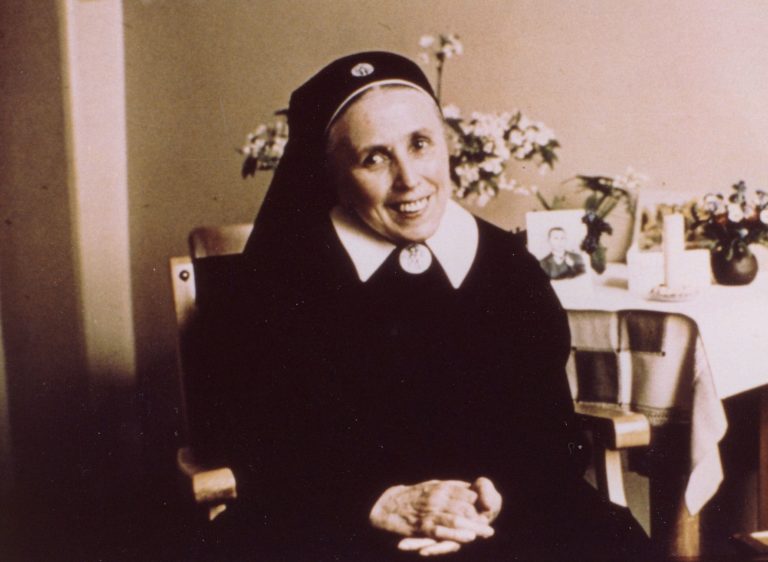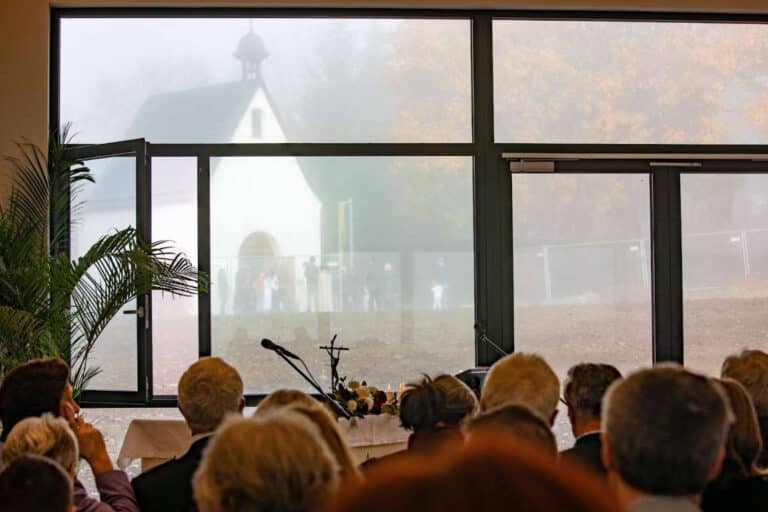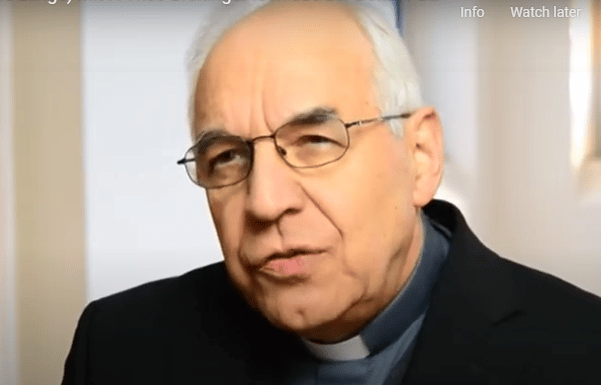On the occasion of the commemoration of Father Franz Reinisch, schoenstatt.com publishes here an interview with Father Niederschlag. Prof. em. Dr. Heribert Niederschlag SAC, was postulator in the beatification process of Fr. Reinisch. He is a “connoisseur of Reinisch” through and through and lives from a personal relationship with him.
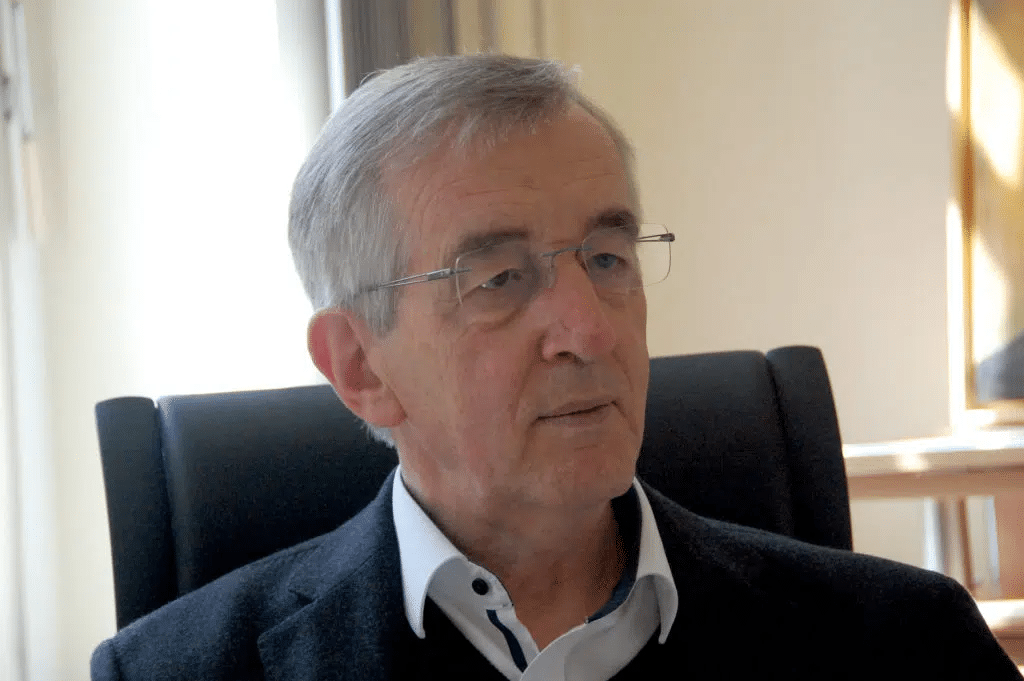
Christian faith and Nazi ideology are incompatible
When Hitler came to power, Franz Reinisch was quick to turn against him. In his noisy and passionate discussions about Hitler and the National Socialist German Workers’ Party
(NSDAP), his clear and unequivocal position quickly became known to all his companions. The superiors were worried. They feared for the community. From the beginning, he resolutely rejected the ideology of the NSDAP. He realized more quickly than others that Christian faith and Nazi ideology were incompatible. His strong desire to go all out made it clear to him that, if called up for military service, he would have to refuse to take the oath of allegiance to Hitler, which would inevitably mean his imminent violent death.
Franz Reinisch faced the challenges of his time and at the same time was and remained a seeker who constantly asked himself: Which path is God asking of me? He was courageous enough to make decisions and to embark on the paths that opened to him.
What fascinates you most about him? And what can he say to our time today?
I am always impressed anew by the fact that Franz Reinisch followed his path consistently and resolutely, even later, during the time of his imprisonment, when the fear of death and inner challenges were trying to take hold of him. He also realized early on that a Christian should never be a Nazi. For him, there was no “both and”, but only “or”.
I am fascinated by his quick and consistent implementation of this idea. He had to make this great decision alone. Apart from his parents, no one supported him. Father Kentenich said neither yes nor no to Reinisch’s decision to refuse the oath of fidelity. He told him to act according to his conscience: “If you can justify your decision to your conscience, then go your way.”
Many wanted to prevent Franz Reinisch from doing so or were even angry with him. Some insulted him and turned sharply away. Franz Reinisch reacted without hatred toward those who were very hard on him.
Practicing the attitude of the “ars moriendi”, the “art of dying”
We live insecurely today, not really knowing what information we can trust. When we do know, we often lack the courage to stand by our convictions. It is easier to look at the “others” and take the path that “one” takes. Franz Reinisch challenges us to ask: Who am I? Who should I become? What does God want from me? I find my happiness in life where I am at home, where I live my life and do what pleases God, in the place where He has placed me.
I am also impressed by how well as a young man, he accepted death in his life. He did not repress it but dealt with it consciously. We live in very uncertain times. Incredible things happen, which can hit us surprisingly quickly, without us having the time to prepare ourselves.
We must be grateful for each day, but at the same time we must be prepared for the fact that it could be completely different the following day. We must again practice the attitude of the “ars moriendi,” the “art of dying,” and be prepared for our demise, whether it comes to us suddenly or whether we are granted a longer life span.
Where did Franz Reinisch get that strength to remain true to his convictions until death, especially since very few people supported him in this?
His real source of strength, it seems to me, was his “Schoenstatt spirituality”; his love of Mary, whom he knew opened the true path to her Son’s heart. He prayed for hours in the Schoenstatt Chapel of Grace and struggled to make his decision. In addition, the writings of St. Vincent Pallotti with their apostolic motivations attracted him very much. They opened for him a freedom and a broadness that was very much in keeping with his personality.
The strenght of his conscience
What strengthened him during his imprisonment was the presence of the Lord in the Sacred Host, which Father Kreutzberg brought to his cell, and the reading and contemplation of biblical texts. In the prison cell, it was enough for him to read the Holy Scriptures. Last, but not least, letters from his father and mother encouraged him. Both fully supported their son’s decision.
Franz Reinisch needed these sources of strength, because the fear of death, which tormented him terribly from time to time, demanded the utmost from him. He strove repeatedly to bear witness to love: “From here, from Berlin, the city of death and hatred, I want to launch the torch of love and peace into the world.”
The strength of his conscience also led him to ask himself: what would become of me if I were to take the oath? His resolute answer: “Then I would be a broken personality, and I could not go on living like that! Better to remain faithful to myself and to God than to acquire a few years of life and live with accusations of infidelity.”
An example and a gift for our time today
What is the status of the beatification process?
The beatification process was solemnly concluded in the Diocese of Trier on June 28, 2019. All the important files and documents have been taken to Rome and are kept at the Congregation for the Causes of Saints. The examination of all the files and documents has already taken place and the work done so far has turned out well, – in the language of the Congregation, the result is “AFFIRMATIVE”. Now the work in Rome can begin.
A “Relator” will soon be appointed to ensure the smooth running of the process and, above all, the drafting of the “Positio“. This document traces the life of Franz Reinisch and, as a result of the investigations carried out so far, it will affirm that Franz Reinisch led an exemplary Christian life of integrity and sealed his faith in Christ with the testimony of blood.
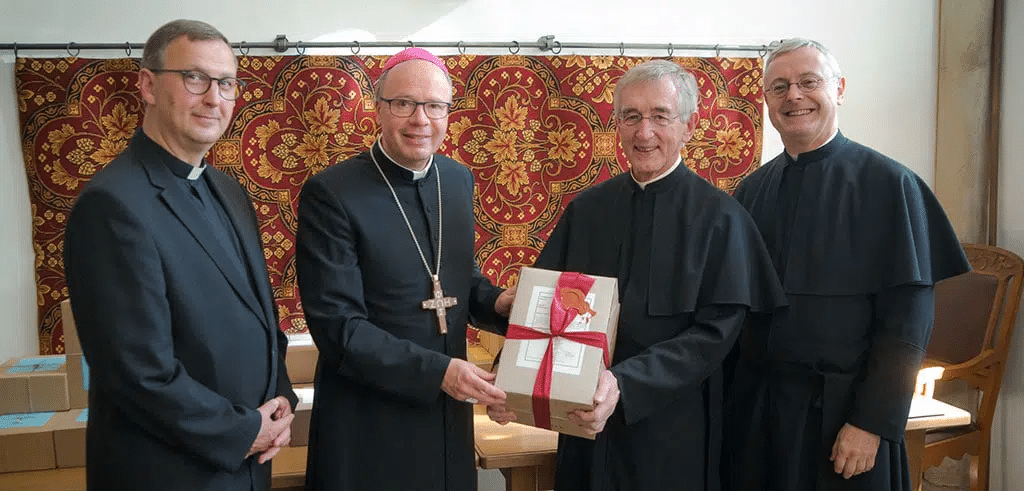
What is needed on our part for the beatification process to continue?
We must make him known in our circles of friends and acquaintances, in parishes and religious communities, and also in the media over which we may have influence. We must allow ourselves to assume Reinisch’s frankness, to form our conscience as he did. Today is the right time to transmit his message of conscience, clarity, and coherence.
Franz Reinisch is not only a gift from heaven for us, but a role model as well.
Thank you very much, Father Niederschlag, for the interview. A special thanks for the immense work you invest and your prayers to make the life and work of Father Reinisch known and thus give people today valuable stimulus for a righteous life.
Thank you very much!

